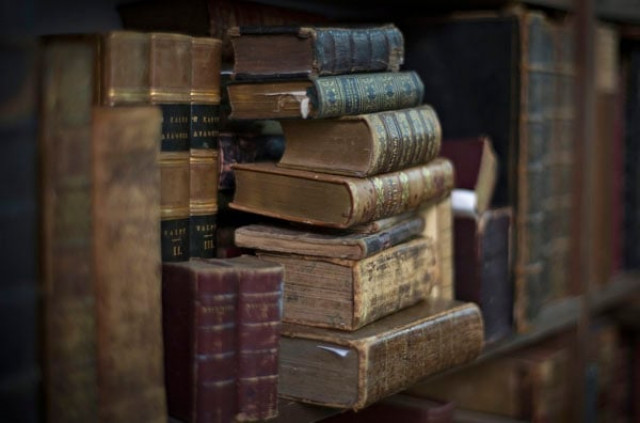The other side of history
The British Museum houses one of the world’s largest and oldest collections of historical artefacts

A Reuters file photo showing used books sit on the shelf.
I had noticed the gallery’s introduction to the Indian Subcontinent started with the line “when Britain administered India”. There was no mention of colonialism or how British Raj evolved. Ironically, a few feet away sat the famous Tipu’s Tiger — an organ with the body of a tiger mauling a European soldier. The caption never mentioned why Tipu Sultan would come up with such a seemingly grotesque piece of art or why he is considered a hero in the Subcontinent for resisting British control of his state. When the British stormed his palace in 1799, Major Price recorded, “The wealth of the palace, which was sufficiently dazzling to the eyes of many who were much more habituated to the sight of horded treasure than we were, seemed, at that moment, to surpass all estimates.” More of this treasure that was looted and presented to George III is displayed in the entrance gallery of Windsor Castle, a paid exhibit.
Artefacts from the Subcontinent and the narrative of administrative control of the region are only part of the eurocentric historical narrative that we know today. The British Museum houses one of the world’s largest and oldest collections of historical artefacts. The museum grew directly as a result of British colonialism as first private collectors and then officially appointed government officers like Henry Salt amassed antiquities, including the Rosetta Stone, resulting in the largest displays of the Egyptian civilisation outside Cairo. Similarly, full wall reliefs and sculptures from the Assyrian and its contemporary civilisations adorn the great galleries.
As if taking away artefacts that were hallmarks of various civilisations was not enough during the 18th and 19th centuries and scattering them in museums across the developed world, the Iraq War also resulted in further looting and plundering of artefacts from Iraqi museums by US and allied forces. While it can be argued that it was European archaeologists and historians who discovered these civilisations, we cannot ignore the blatant exploitation here by the colonising powers.
Moreover, whether these museums acquired them through family donations (which is what the earrings were); through purchases from private collectors; or colonial looting, they fail the viewers on educating them on colonial and imperial history. With the recent anti-racism protests following George Floyd’s murder, the West must acknowledge its past.
Belgium has finally woken up and removed the statue of its monarch, Leopold II, who was responsible for the killing, maiming and raping of 10-15 million Congolese during his rule, yet many in Belgium remained unaware of this before his statues were attacked by protesters last week. Meanwhile, Belgian Prince Laurent stated, “Leopold II was not responsible for atrocities in the colony ‘because he never went to Congo’.” The statement clearly reflects the introspection the West needs to do regarding its history, as the Congo Free State was a private project administered on Leopold’s behalf. The state benefited through the extraction of ivory and rubber, and failure to produce the required amount resulted in the torture of forced labour (read: slaves).
With former colonial and imperialists powers now standing face to face with its past, perhaps recent events will cause many to turn to history books, only to find that much of the developed world has succeeded on the back of the underdeveloped world.
Published in The Express Tribune, June 17th, 2020.
Like Opinion & Editorial on Facebook, follow @ETOpEd on Twitter to receive all updates on all our daily pieces.















COMMENTS
Comments are moderated and generally will be posted if they are on-topic and not abusive.
For more information, please see our Comments FAQ